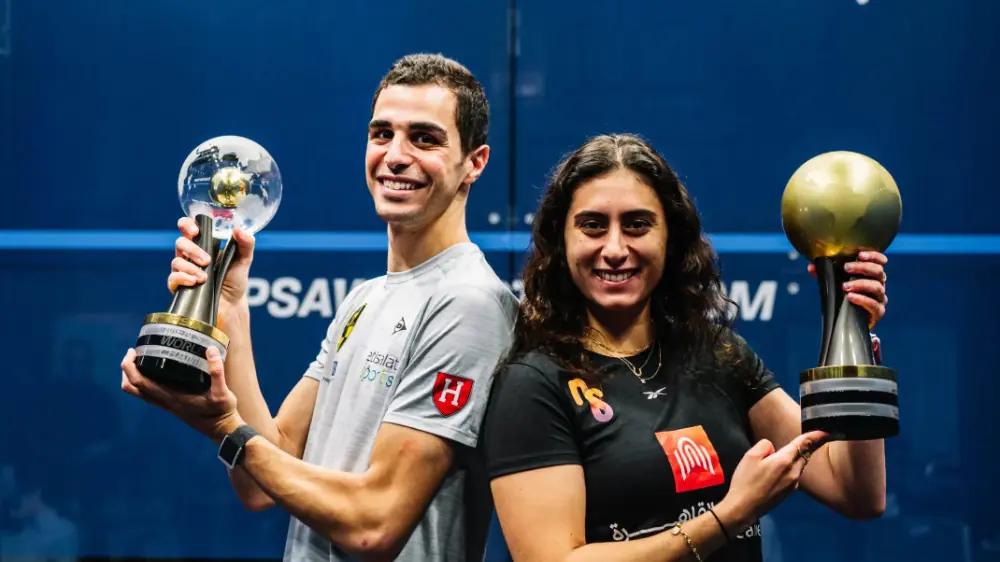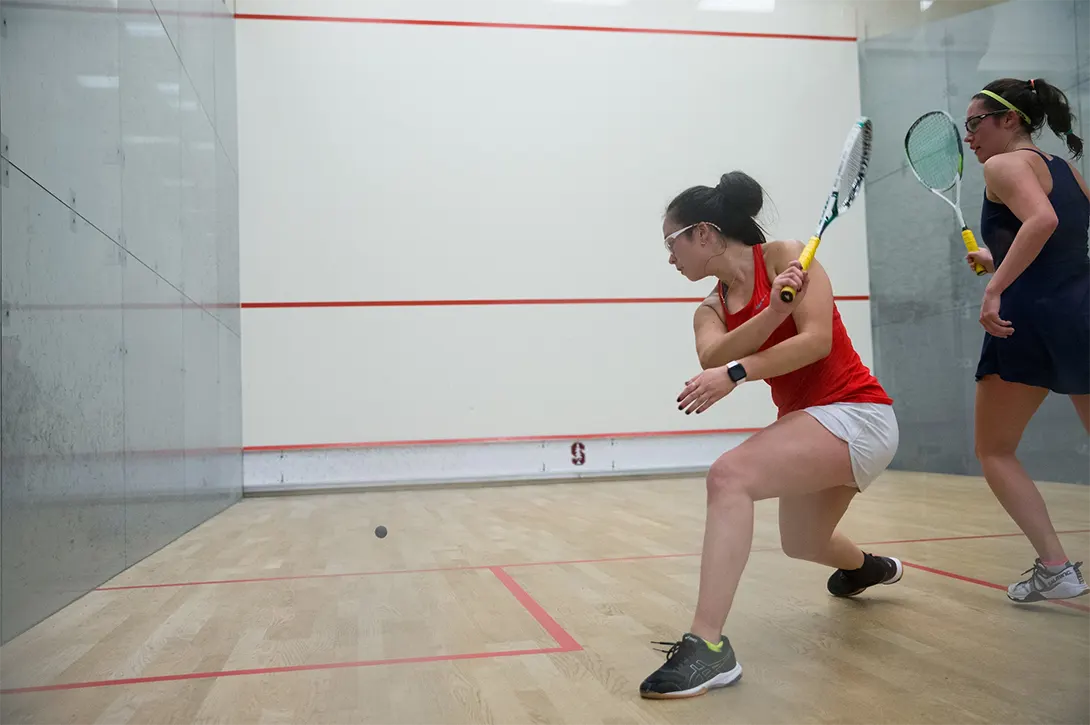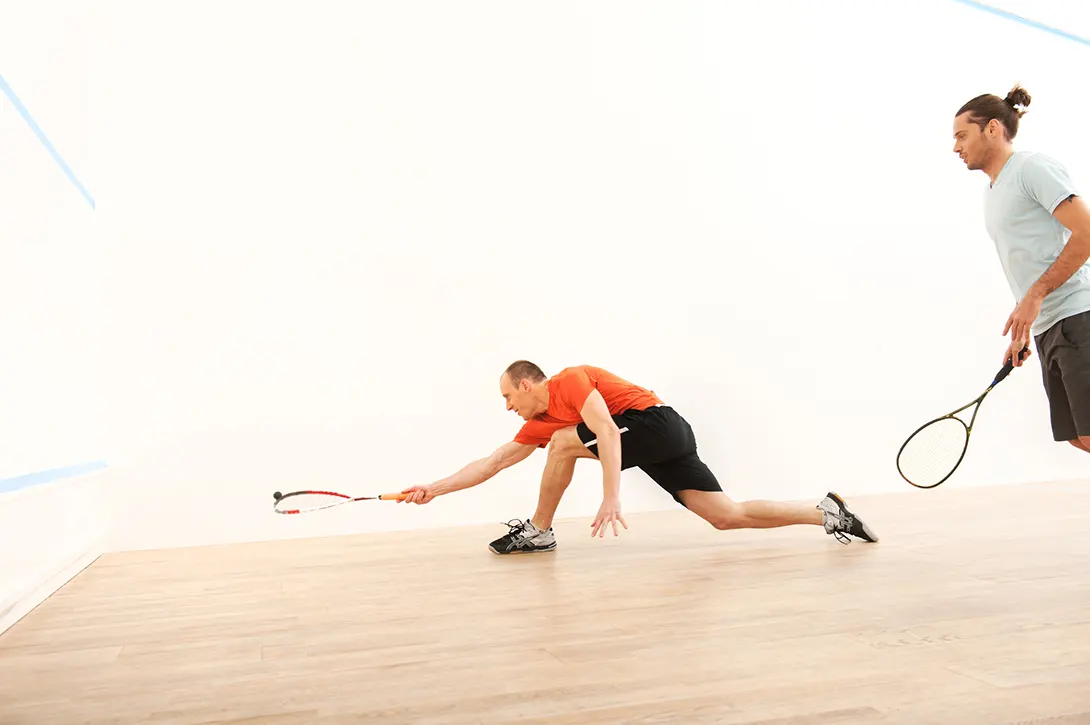15 November 2022 / 3-Min Read / Translate
I am sorry to be the one to tell you, but you won’t be. Squash has many levels that are not apparent when you first start playing.
About a year ago, I did a video analysis for a player. I talked about the areas where he can improve and gave him some general advice. Everything seemed great until in the follow-up email, he asked me how long it would take to reach the level of the player who he was playing against in the video. I told him two or three years. “Oh!”, he said, “I thought it would be just a couple of months.”

That could be you one. It's a lot of hard work though.
The problem was that he was unable to see how little effort his opponent was playing with. Yes, he won a few points and had some good rallies, but his opponent never tried to hit the ball too hard or very deep. I could have easily believed that the player who asked for the analysis was the boss of the opponent, and he was trying to make the boss look good.
I felt terrible after telling the player my opinion. Even by text, he seemed deflated. I’ve asked myself many times whether I was wrong to be so direct and honest. I have to balance that honesty with saying things just because the pupil wants to hear them. It’s a very delicate balance. I am a little embarrassed to say, but I can’t remember the person’s name and I looked through my previous analysis videos and searched through my email, but can’t find him. I almost want to be wrong and for him to tell me that he now regularly beats that opponent, but I highly doubt it.
If you had a video analysis with me and I told you it would take a few years to beat your opponent and you thought it would only take a few months, please contact me so we can chat!

You only get good through hard work and time
For some new players, squash is easy and they seem to make such rapid progress that surely they must be champions soon! The reality is very different. Watching, or even playing against somebody, can give the impression that if you were just a little faster, hit a little better shots, moved your opponent around a little more, then you would win.
You forget that what you see is not the actual potential of your opponent. They only have to play well enough to win most points against you. You forget that when you play better, so can they.
Sometimes the seemingly smallest thing can have a huge effect. For example, slightly more consistency in deep drives can make one player seem like a whole level up. Slightly better crosscourts can drag you wide and then make their straight drives even more effective. Of course, it’s not simply better, deeper, wider or faster lengths that cause issues for players. Better boasts, that give you less opportunities, more volleys, even if they are not necessarily better shots, can rush you enough that your normal shots are less effective.
I’m sure it’s the same in all sports, but for squash I always felt it was more subtle. I remember going to tournaments and watching a player and thinking, “WOW, that guy is amazing” and then I saw them in the next round getting absolutely beaten.

Purposeful practice and commitment separates the dreamers from the doers.
Don’t worry about anybody else except yourself. Focus on improvement NOT results. Play to learn and have fun, not just to win. Depending on your age, you may have many years of squash in front of you. Don’t rush yourself.
I want you to be ambitious. I want you to want to be the best you can be. I want you to dream of being club number one. But. I want you to not start thinking your improvement will be linear. It won’t. They will be times when you feel you are getting worse. Times when no matter how hard you work, you can’t seem to get better. They will probably be times when you hate the sight of a squash court.
It’s all part of the love/hate relationship you will have with squash. The key is to enjoy your time on court, work hard and leet the improvement come naturally. Don’t put too much expectation on your shoulders.